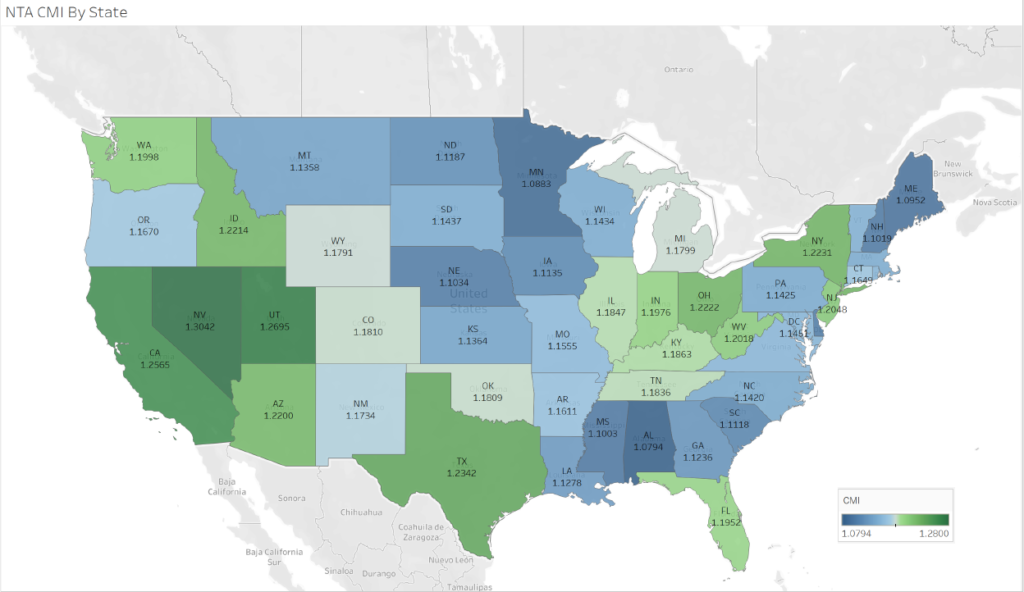
This year the Derby will look very different in the Bluegrass State.
The legendary Race for the Roses typically marking the end of spring will this year mark the end of summer. It is being held sans spectators Sept. 5 at Churchill Downs in Louisville, KY.
No spotting celebrities on millionaire’s row.
No comical people watching in the infield and no fashion police to spot the best hats in the crowd.
Yes, the Derby will look very different this year, but the traditions and the excitement in the air remain strong.
To my loyal readers, you know that I love a good racing analogy. One of my favorite articles was pre-PDPM in January of 2017, during the time of technical expert panels, when folks were doubting the Centers for Medicare & Medicaid Services would actually shift us from a volume to value-based reimbursement system.
My “Is your rehab provider wearing blinders?” article also ran at a point when I really felt I had hit my personal blogging stride.
The opening went something like this..
Never, ever bet on a horse wearing blinders.
Why, you ask?
Because, of course, a horse wearing blinders must be irresponsible, uncontrollable and, worst of all, completely unaware of its surroundings. At least as a child who spent my summers at the track, that was my logic.
I went on to outline potential changes in the industry and advise folks to partner with rehab professionals who were in-tuned to CMS efforts and the recent updates from MedPAC.
Now it is 2020, we are in the midst of a pandemic, we are one week ahead of a historic Kentucky Derby, and I will ask you again: Is your rehab provider wearing blinders?
Worse, has your rehab provider placed blinders on you?
The result of the IMPACT Act, COVID-19, and transition to the Patient Driven Payment Model has rightfully caused us to shift focus and improve our ability to protect ourselves and our patients, manage care based on clinical needs and presentation, improve infection control and promote a successful rehab path for those we serve.
Focusing on any of these areas in a silo, however, can leave providers and those they care for running blind.
What, for example, should we consider in national, regional and local trends?
Let us look at the Derby pack. The group this year stems from the states generally known for producing quality horses, including New York, Kentucky, Virginia and Florida.
If you follow my childhood logic, we also have a nice group of gray horses running this year. They include: Enforceable, Rushie, NY Traffic and Winning Impression.
Enforceable and Winning Impression are both gray and both are from Kentucky. Hence, they would be my picks.
Likewise, providers should ensure that their rehab providers can logically analyze national, regional and local trends while assimilating clinical focus metrics to honor shifts in our reimbursement models.
Take, for example, non-therapy ancillary within PDPM and how this rationally integrates with the impact of medical complexities we see in COVID-19 risks and recovery. Asthma, COPD, lung disease, diabetes, immune disorders, liver disease, tracheostomy care and obesity. All have impacts on PDPM non-therapy ancillaries and all have impacts on COVID-19 risks and recovery.
Remember how we all praised the addition of NTA and applauded CMS for recognizing that medical complexities have significant impact on cost and associated care needs? Now we must respect that addition and use coding accuracy to drive clinical interdisciplinary rehab care.
CMS’s Research and Data Assistance Center (ResDAC) recently released Q1 2020 data for PDPM. For reference you can see your individual state and its average below.

Consider where you stand in the pack.
How were you trending in NTA at the beginning of the pandemic? How will you trend in the future?
Have you hit your stride with coding accuracy or is there still room for improvement?
The Derby days of summer are here.
Prepare your team to stay ahead of the pack as the industry awaits upcoming changes.
Remember to find your gray horse — and beware of those running blind!
Renee Kinder, MS, CCC-SLP, RAC-CT, is Vice President of Clinical Services for Broad River Rehab and a 2019 APEX Award of Excellence winner in the Writing–Regular Departments & Columns category. Additionally, she serves as Gerontology Professional Development Manager for the American Speech Language Hearing Association’s (ASHA) gerontology special interest group, is a member of the University of Kentucky College of Medicine community faculty, and is an advisor to the American Medical Association’s Relative Value Update Committee (RUC) Health Care Professionals Advisory Committee (HCPAC).





